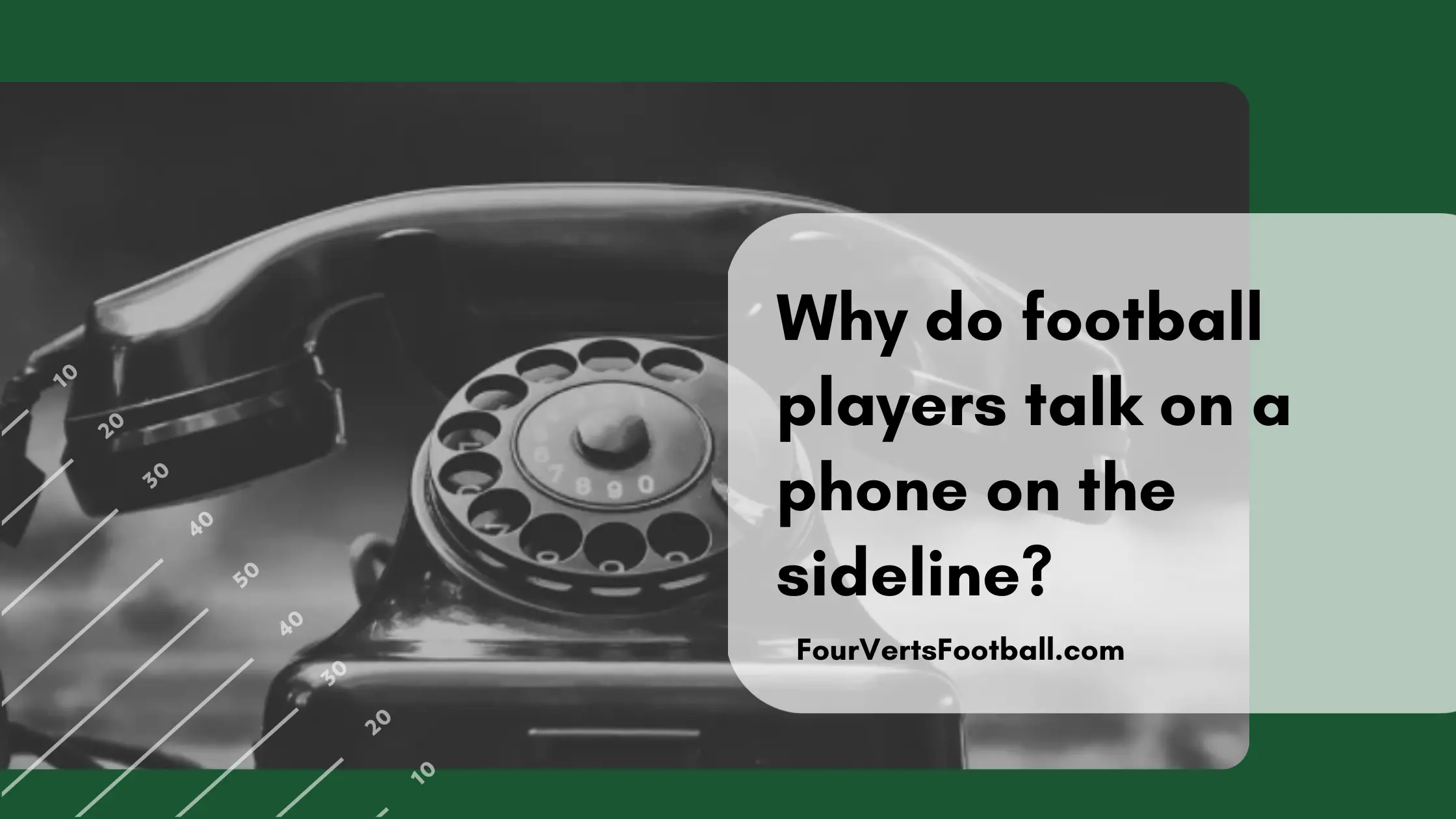When watching football on television you may have noticed that quarterbacks occasionally take calls on a phone on the sideline. This has left many fans wondering what exactly this is meant for.
The main reason a player will talk on the phone on the sideline is to communicate with the offensive coordinator. Offensive coordinators often call games from a booth in the stands. This direct line allows the coordinator an opportunity to speak to his players.
The vast majority of the time the player that is going to speak to the offensive coordinator is the quarterback. In-game coaching of other offensive positions is usually done by positional coaches such as a wide receivers coach.
There are also other offensive coaches in the box with the offensive coordinators. It is usually the offensive coordinator doing the talking but other coaches may chime in as well.
Football players will also communicate with one another on the field, terms like Oskie are said after an interception in order to tell other players to block for the ball carrier.
What do they talk about on sideline phones in football?
Now that you understand why football players are on the phone on the sideline you may be wondering what exactly they are talking about.
Telling the quarterback what they are seeing
One of the main topics of conversations on sideline phones in football is communications from the booth to the quarterback about the defense. When in the booth the offensive coordinator is going to have an elevated view of the field.
This may allow them to see weaknesses they can exploit. If the quarterback is not taking advantage of them the offensive coordinator may call the sideline phone and advise the quarterback.
An example of this would be seeing a safety that is committing early to the run. A coach in the booth may notice this and realize the defense could be exploited for a play-action passing play.
The quarterback should be advised which safety is committing this error so he can be ready to throw the pass in his zone when executing the play-action passes. These sorts of details allow the quarterback a strategic advantage against the defense
The offensive coordinator is essentially coaching the quarterback through the phone.
Asking the quarterback what he sees
The landline on the sideline can also be used in order to get information from the quarterback. The offensive coordinator is often going to be the coach that is calling the offensive plays.
It can be helpful to have the perspective of the quarterback to know what the offense can do to succeed.
From up in the booth the coaches may not be seeing minor details such as a defensive player getting his hands in the passing lanes. This may not be visible in the booth but could be significantly hindering the quarterback’s ability to complete passes.
Communication of what’s happening on the field from the quarterback can allow the offensive coordinator a better idea of what plays to call next time they get the ball.
It is important that the quarterback uses the phone to communicate with the OC as the mic in their helmets does not allow for the qb to speak to the coaches.
Words of advice
On top of getting information on playcalling, the offensive coordinator may also speak to the player as a coach.
Advice regarding how to handle himself or the moment can be given by the coach so the player can stay focused.

